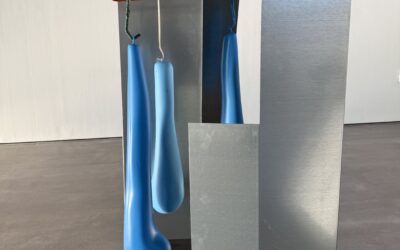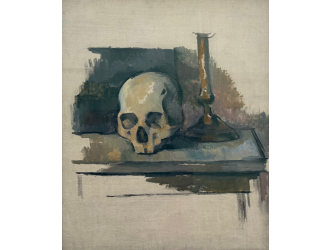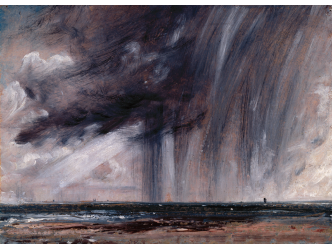In Lee Ufan Arles
Through October 5, Lee Ufan Arles—the institution that the Korean artist opened in 2022 in the Camargue—presents “A Conversation Piece,” a dialogue between his own work and that of Michelangelo Pistoletto.
Unexpected encounter
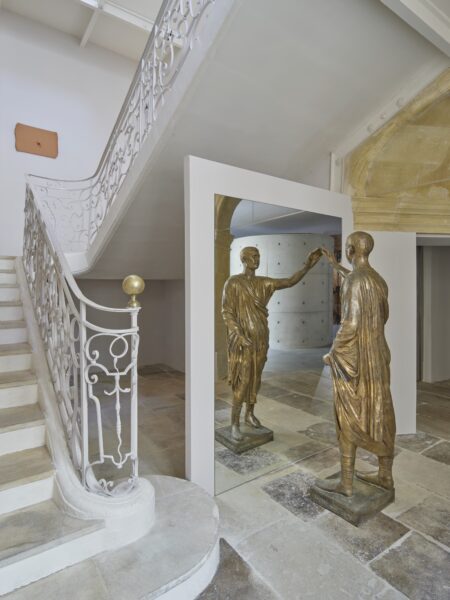
Michelangelo Pistoletto
This unexpected encounter between two “conceptual” artists, both with many years of experience behind them, has taken the shape not only of an exhibition but also, for our benefit, an exceptional verbal exchange; one slightly destabilized—like a fleeting, miniature Tower of Babel—by translations passing from Italian into French, from Japanese into French and finally transcribed into English.
Viewer absorbed
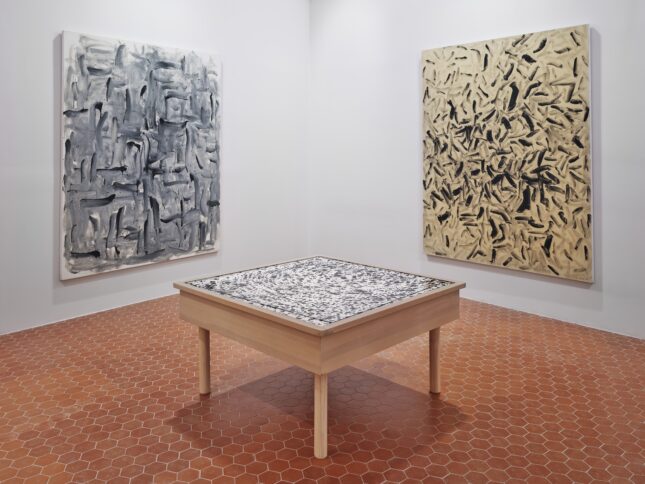
Lee Ufan
On one side stands the Italian named after the great Renaissance master, Michelangelo Pistoletto (aged 92). He is a central figure of Arte Povera, the movement that from the early 1960s championed the use of humble materials. The concept that brought him international recognition, and that he continues to explore today, is a mirror onto which he silkscreens images.
Mirror effect
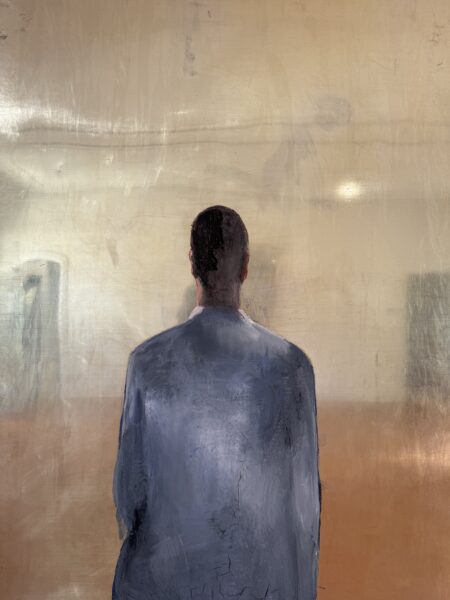
Michelangelo Pistoletto
In these endlessly variable “mirror paintings,” the viewer becomes absorbed into the work they contemplate. More broadly, Pistoletto possesses a humanist vision for his work, that he develops through his foundation Citadellarte in his native Biella, in the Piedmont region.
Mono-ha
On the other side stands Lee Ufan (aged 89), born in Korea, educated in Japan, now living between Japan and Paris. He is an artist of the in-between, a pivotal figure of Mono-ha, the Japanese movement of the late 1960s. His philosophy builds a bridge between Asia and the West, between the hand of man and the forces of nature, between tension and release.
Pistoletto and Lee share a profound attraction to concepts such as infinity. Both embrace paradox, as their dialogue makes clear.
When two artists like you meet, what happens?
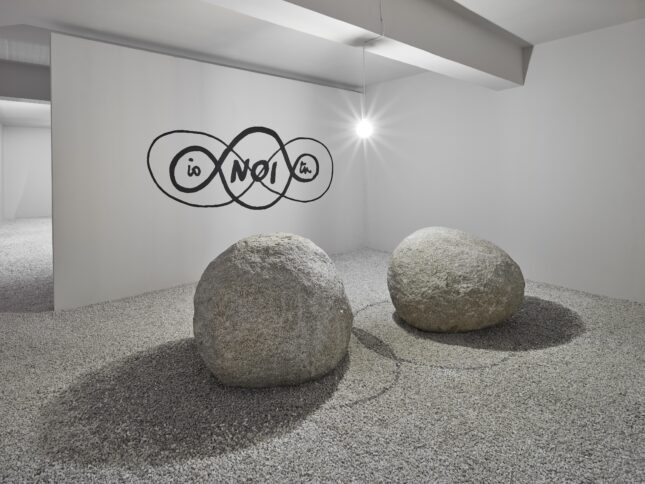
Lee Ufan / Michelangelo Pistoletto
MP: We live in a time when cultures from the past are converging. My own lineage is that of figuration. His is the gesture that becomes a sign, a sign that may be used for figuration or to form words. In our exhibition, these two cultures meet in shared needs.
LU: Our cultures meet though their foundations are far apart, of very different natures. I come from the world of abstract painting. The important thing is that each of us is relatively old. We have each accumulated time and experience. You need to understand that seeing things over such a long span changes one’s perspective. Mr. Pistoletto uses the mirror, and sometimes so do I. His mirror plays the role of a table, linking and separating things at once. It acts as an intermediary. I think it’s a wonderful means of expression. He sometimes uses very concrete images; mine are more symbolic, more minimal. But what we share is the desire to express a heightened spiritual force.
You mentioned shared needs. Can you explain it?
MP: The world today is economically unified, but it’s evolving in an artificial system. Artificial intelligence only appears to unify the world. The role of art is to show how the physical and the virtual can come closer together and balance each other out.
Where do you overlap?
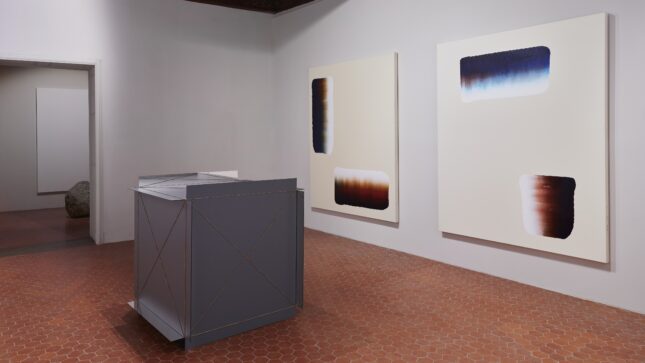
Lee Ufan
MP: We both seek to bring together the physical and the metaphysical. “Meta” means “beyond.”
LU: The most important thing is that we do not provide answers. AI produces an answer, but it does not satisfy me. Faced with all our problems, with all these wars, we must take our time and ask ourselves questions. We must also restore our physicality and then go further—towards the metaphysical. To that end, we must use our imagination. Here art plays an important role.
It seems clear that each of you, in your own way, has a sense of spirituality in your work.
MP: At his core, man is not simply an animal. He produces something that is not physically tangible yet is fundamental. It evokes what is greater, what is everywhere, what endures. This is the very reason for our existence. It’s also the foundation of all religions. But I try to find a system in which art and science together allow for something more. We have not yet reached total knowledge. Truth is always further on.
LU: The world grows ever more complicated, ever stranger—it’s true. Given this situation, why should he and I consider metaphysics in a new sense? If we look only at the present, we won’t see anything. We advocate for more seriousness, more distance, a longer view. That is the sense in which we make art. It is important to create opportunities to connect with the universe—with the infinity of the world.
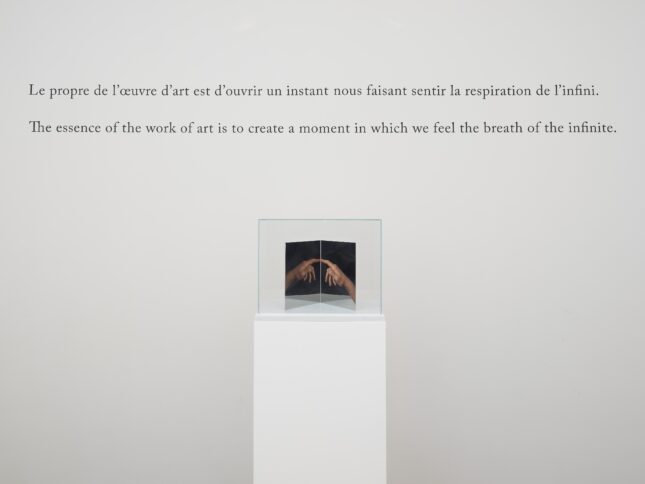
Michelangelo Pistoletto
The next question is perhaps obvious. Can you explain your symbolic, metaphorical use of the mirror?
MP: In the mirror I see infinity. I stand before it at a distance of a meter, a meter and a half, and already that is the maximum distance. The mirror has no wall. It touches infinity. It is a self-portrait that expands from the solitude of one person to the multitude of us all: the mirror painting.
LU: There are many ways to use a mirror. Van Gogh for example looked into the mirror and drew himself. The mirror was something that looked back at him. But in fact, the mirror looks at others. It looks toward infinity. My definition of infinity is all the possible kinds of encounters and relationships. The concept of infinity encompasses all the possibilities for change. My mirror is neutral. In a sense, I am not the person reflected in the mirror. I am someone else.
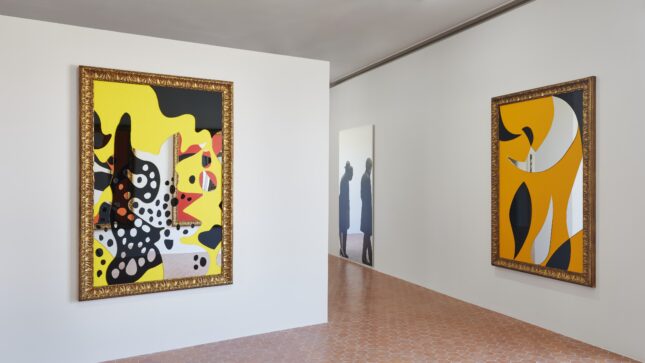
Michelangelo Pistoletto
And finally, when each of you looks into the mirror, is there something you regret?
MP: My regret is my future. My regret will be to die without possessing knowledge. I do not regret the past, only the future.
LU: There is no sense in searching for regrets. But let me say this. In the 1960s I was deeply interested in ideology, in socialism, in communism. But the more I thought about it, the more I realized that it wasn’t the right approach. To strive to be a social activist so that the world might improve… That’s false. I wanted to change that ideology, but in the end, I abandoned it, for I saw no future in it.
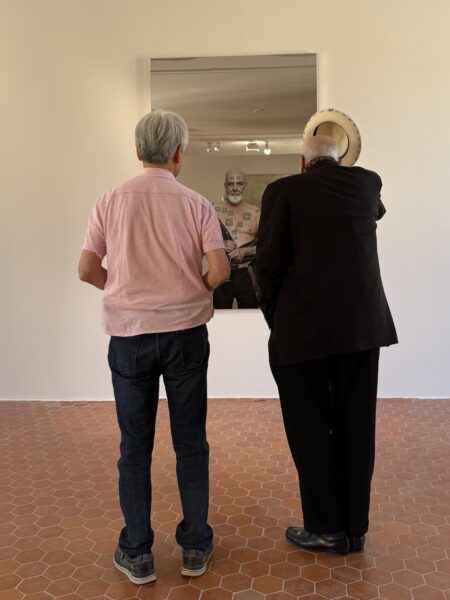
The transcription of the interview has been lightly adapted for readability.
Until 5 October. www.leeufan-arles.org/
Support independent art journalist
If you value Judith Benhamou Reports, consider supporting our work. Your contribution keeps JB Reports independent and ad-free.
Choose a monthly or one-time donation — even a small amount makes a difference.
You can cancel a recurring donation at any time.


